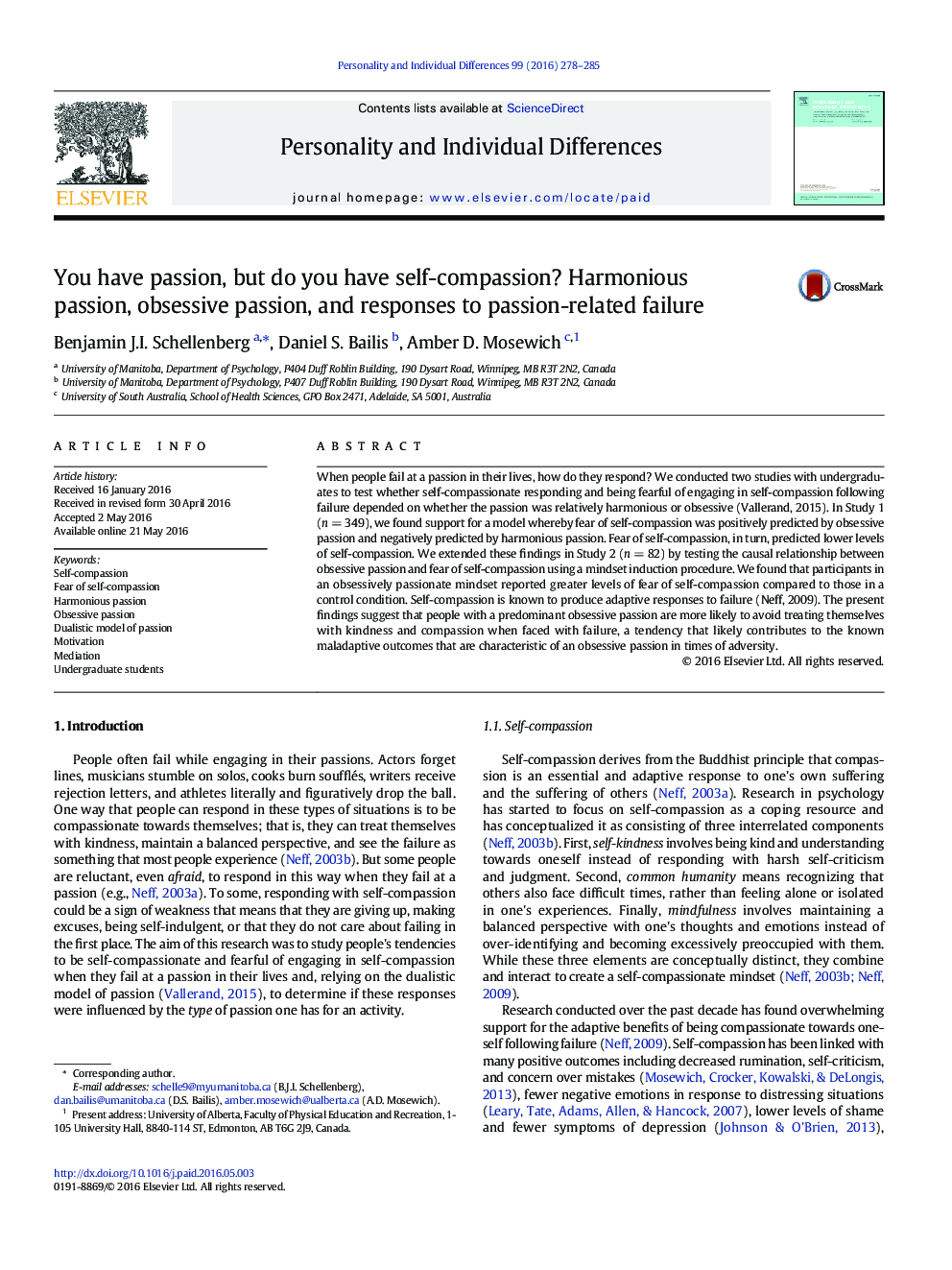| Article ID | Journal | Published Year | Pages | File Type |
|---|---|---|---|---|
| 889732 | Personality and Individual Differences | 2016 | 8 Pages |
•We examined if distinct passion types predicted self-compassion following failure.•We conducted two studies using cross-sectional and experimental designs.•Harmonious passion positively predicted self-compassion.•Obsessive passion predicted being fearful of engaging in self-compassion.
When people fail at a passion in their lives, how do they respond? We conducted two studies with undergraduates to test whether self-compassionate responding and being fearful of engaging in self-compassion following failure depended on whether the passion was relatively harmonious or obsessive (Vallerand, 2015). In Study 1 (n = 349), we found support for a model whereby fear of self-compassion was positively predicted by obsessive passion and negatively predicted by harmonious passion. Fear of self-compassion, in turn, predicted lower levels of self-compassion. We extended these findings in Study 2 (n = 82) by testing the causal relationship between obsessive passion and fear of self-compassion using a mindset induction procedure. We found that participants in an obsessively passionate mindset reported greater levels of fear of self-compassion compared to those in a control condition. Self-compassion is known to produce adaptive responses to failure (Neff, 2009). The present findings suggest that people with a predominant obsessive passion are more likely to avoid treating themselves with kindness and compassion when faced with failure, a tendency that likely contributes to the known maladaptive outcomes that are characteristic of an obsessive passion in times of adversity.
